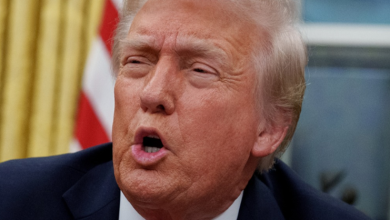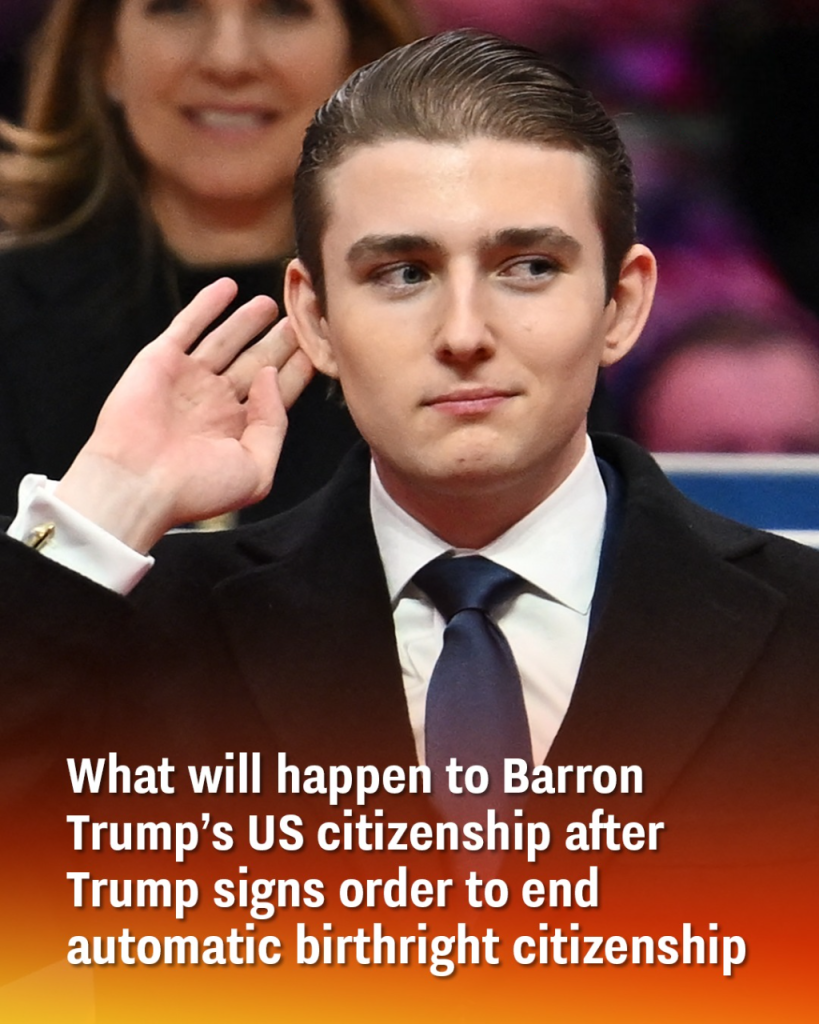
Since being inaugurated as the 47th president of the United States on Monday, January 20, Donald Trump has already taken significant action through several executive orders.
At 78 years old, the Republican leader has introduced numerous directives—legally binding instructions to federal agencies that bypass the need for congressional approval. Among these actions are the withdrawal from the Paris Climate Agreement and the World Health Organization (WHO), as well as the postponement of the TikTok ban.
In addition, he has sparked intense debate with bold steps aimed at ending birthright citizenship, raising questions about what this could mean for his youngest son, Barron Trump, and his status as a U.S. citizen.
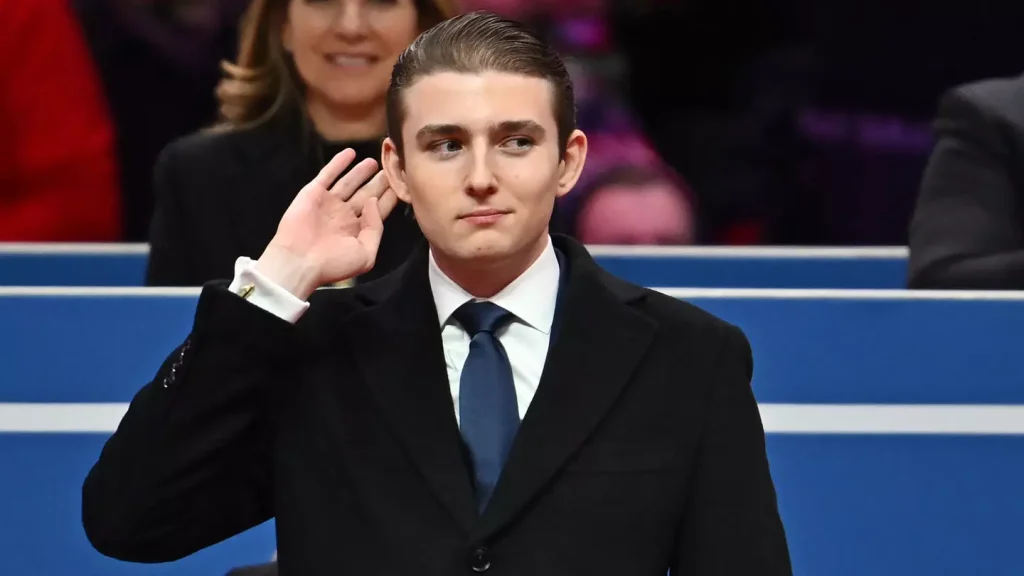
Birthright citizenship meaning
When Trump brings up birthright citizenship, he’s likely referring to the legal concept known as jus soli, which translates from Latin to “right of the soil.”
The opening line of the 14th Amendment to the U.S. Constitution lays the foundation for this principle: “All persons born or naturalised in the United States, and subject to the jurisdiction thereof, are citizens of the United States and of the state wherein they reside.”
Essentially, this rule grants citizenship automatically to anyone born on U.S. soil, regardless of their parents’ nationality. In other words, it ensures that almost everyone born within the country’s borders is recognized as a U.S. citizen from birth.
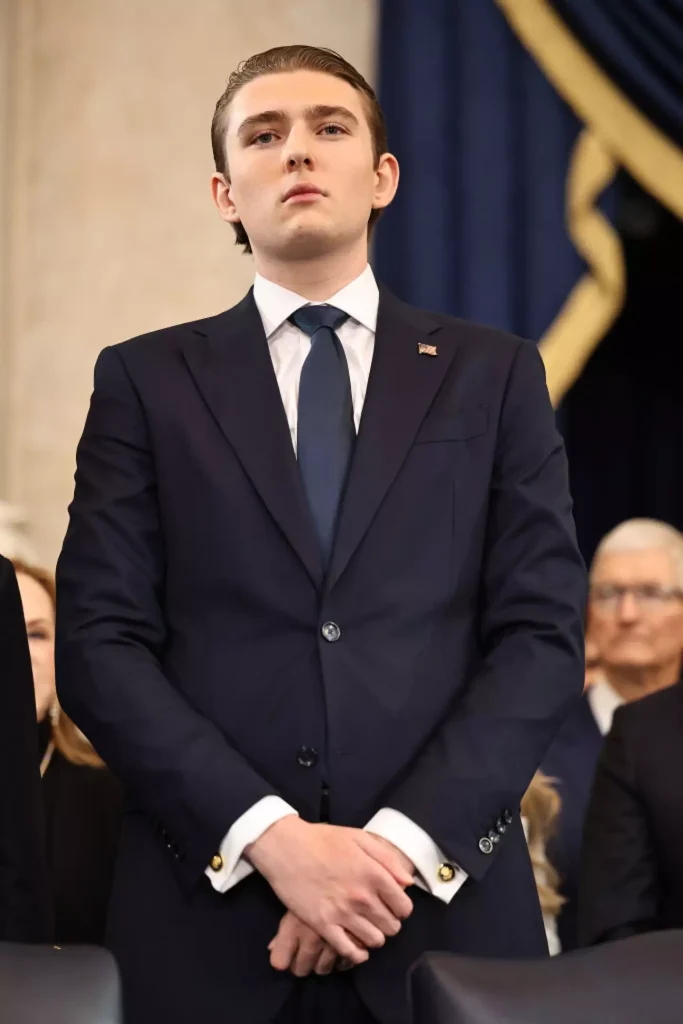
What does Trump’s executive order do?
Trump’s executive order aims to change the current rules for granting citizenship to children born in the U.S. Specifically, it seeks to prevent children from automatically gaining U.S. citizenship unless at least one parent is either a lawful permanent resident or a U.S. citizen.
Under this order, federal agencies would be prohibited from issuing or recognizing official documents that confirm U.S. citizenship for children who don’t meet those criteria. This would take effect 30 days after the order is signed.
The primary focus of the executive order is on children born to undocumented immigrants and individuals who are legally in the U.S. on temporary visas.
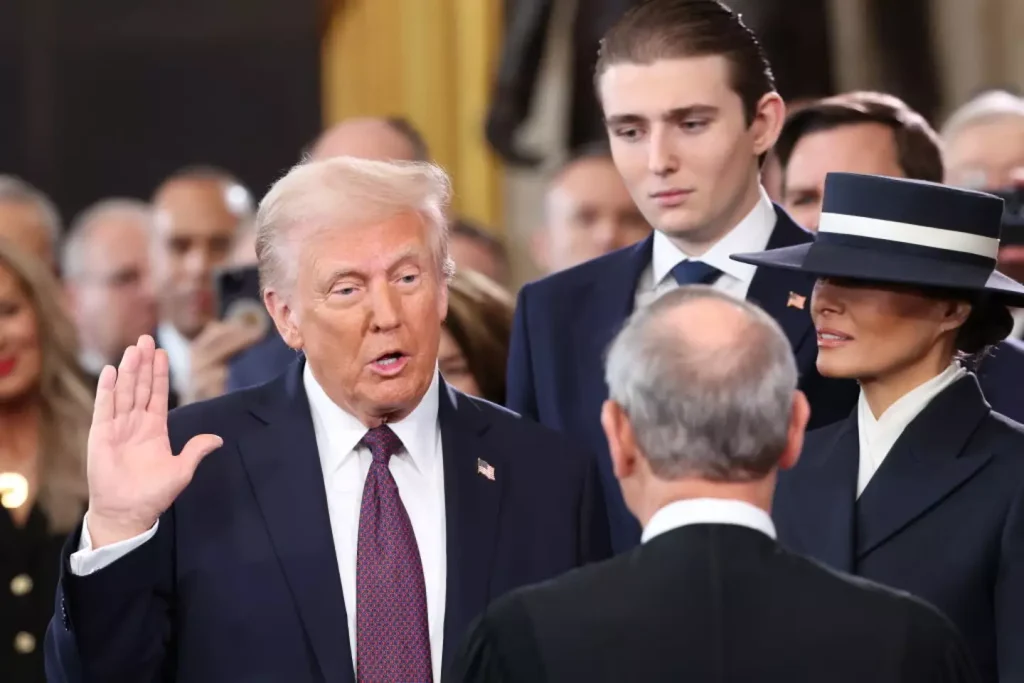
What does the future hold for Barron Trump?
Barron, born in Manhattan in 2006 to Melania Trump, a Slovenian native, is a U.S. citizen by birth. At the time of his birth, Donald Trump was considered a “natural-born U.S. citizen,” while Melania was a lawful permanent resident who had held a green card since 2001.
This means the proposed executive order wouldn’t have any effect on Barron.
Can Trump actually eliminate birthright citizenship?
The 14th Amendment safeguards birthright citizenship, and any attempt to revoke it would likely face immediate legal challenges.
In other words, it’s highly improbable that Trump could successfully abolish birthright citizenship—especially not through an executive order.






